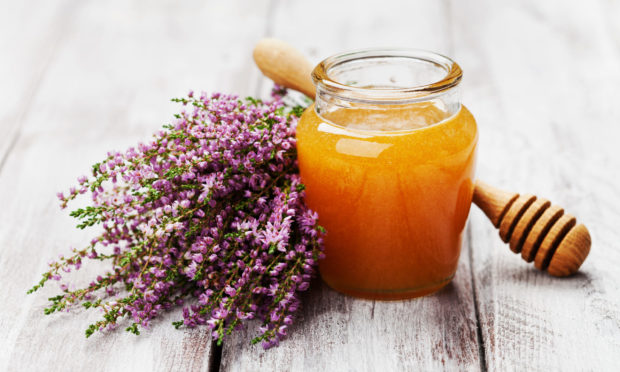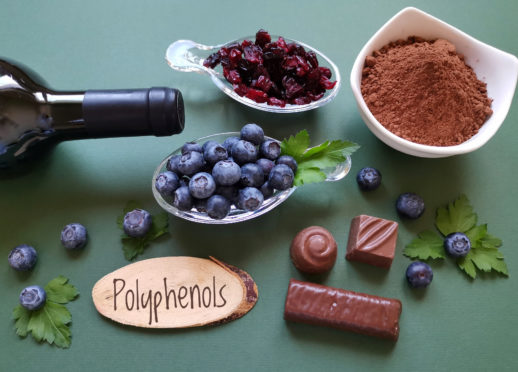As research suggests honey can be more effective than conventional medicines for improving symptoms, we look at the multiple benefits of this super-ingredient – and why our local heather honey comes top of the class.
With honey in plentiful supply in Scotland thanks to our abundance of heather and flowering plants, it’s long been used as a home remedy for soothing sore throats and coughs.
But having analysed the results of several different studies into the health benefits of honey, researchers found it was more effective than conventional medicines, at reducing upper respiratory symptoms.
The Oxford University research published in the British Medical Journal found people treated with honey had lower severity and frequency of symptoms which lasted between one and two days less than those who had not been given it.
The findings add to the already substantial list of health benefits associated with the ‘nectar of the gods’ and has propelled it to being the super-food of the moment, particularly in light of the coronavirus pandemic.
And here in Scotland, it appears we have some of the world’s healthiest supplies with Scottish heather honey found to rival New Zealand’s expensive manuka honey because of its high levels of the important mineral manganese.
Heather honey is made by bees from the nectar of the tiny pink/purple flowers of the common heather plant grown on wild landscapes and particularly abundant on heathland, moors, bogs and woodland with acidic or peat soils.
The honey was tested by scientists as part of research commissioned by The Scottish Bee Company, which produces honey in a number of areas across Scotland including Stirlingshire, Fife, and Aberdeenshire, and found to contain to 10 times more of the essential micronutrient, manganese, compared to 200 of its global rivals.
Suzie Millar, founder of The Scottish Bee Company welcomed the new Oxford University study into the effectiveness of honey in treating respiratory symptoms, but warned “not all honeys are the same, with 40% being substandard or adulterated”.
In a recent report we looked at the issue of ‘honey laundering’, in which international crime organisation Interpol advised consumers to buy local, adding: “Illicitly produced honey has been found to contain potentially harmful antibiotics. Always read the ingredients and avoid products that have added sugar or syrup. Buy from local producers where possible.”
Although many people swear by eating local honey to help prevent hayfever, there is limited research to support this long-held belief.
But there are many evidenced health benefits to eating local heather honey which we’ve rounded up for you here…
It’s high in manganese
Not a mineral that’s commonly known, manganese is something the body needs to support brain and nervous function, but can’t make.
It’s thought to be important for bone health, helping protect against osteoporosis, whilst also reducing inflammation and helping to regulate blood sugar levels.
Antibacterial properties
In 2013, researchers from Glasgow University found heather honey has powerful natural antibiotic healing properties that could see it being used for treating wounds in humans and animals with further research.
Skin-deep benefits
As well as helping with wound healing, research published in the Scientific World Journal, suggested honey may also help with skin tissue growth and minimising the appearance of scarring. These effects were attributed in part to honey’s acidity and hydrogen peroxide content, as well as its nutritional and antioxidant properties.
Its topical application was also found to improve seborrheic dermatitis in patients who applied diluted honey every other day to the scalp, face or chest.
Polyphenol power
Honey also contains varying types of all-powerful polyphenols – a source of disease-fighting antioxidants thought to reduce inflammation along with the risk of heart disease and some cancers. Nutritionists recommend we eat a diet rich in polyphenols which can be found in plant-based foods, including cocoa power and dark chocolate, fruit, beans, nuts and vegetables.
Gut-health boosting
Foods that contain polyphenols encourage ‘good bacteria’ to thrive in our lower intestines, which scientists are now discovering can lead to a range of health benefits – including boosting our immune systems.
But don’t overindulge
Although it’s a natural product, honey is still high in sugar – containing around 40% fructose and 30% glucose – and calories, so it’s best to stick to small amounts each day.


